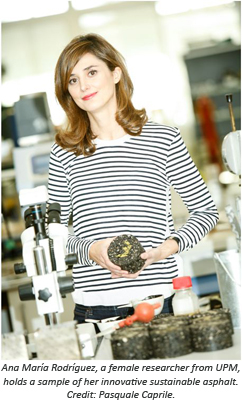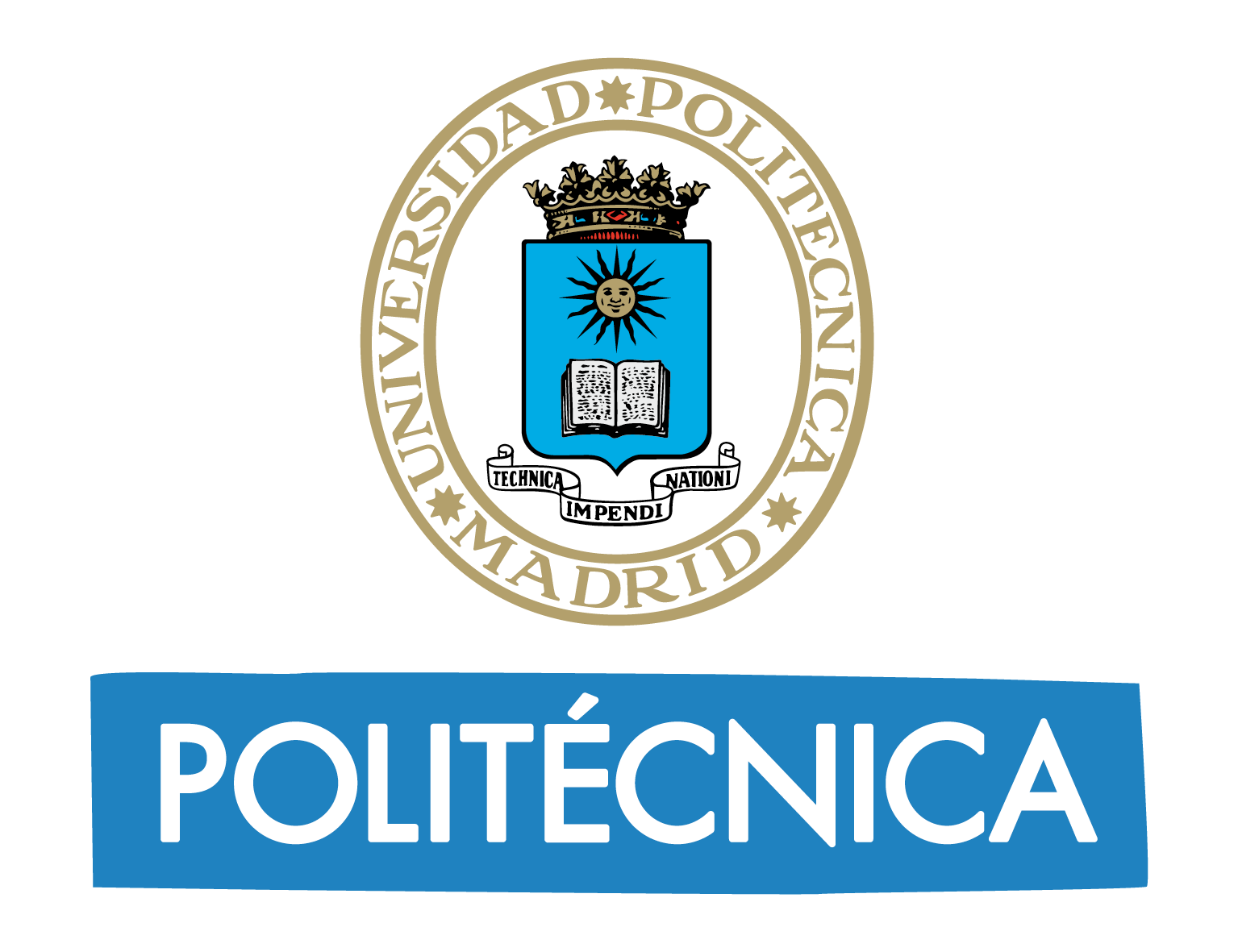A new sustainable asphalt made of tire waste and organic wax
A female researcher from Universidad Politécnica de Madrid has developed an environmentally-friendly asphalt reducing both the energy consumption and greenhouse emissions.
A study carried out at the Universidad Politécnica de Madrid has shown that is feasible to reduce the manufacturing temperature and the placing of asphalt mixtures up to 30 degrees maintaining a good mechanical behavior. Likewise, and through a hybrid life cycle assessment, researchers were able to accurately quantify the benefits and environmental impact of the production of these mixtures taking into account the entire supply chain in terms of energy and greenhouse emissions. The result was a novel asphalt more sustainable for the environment.
Over the last years, due to the growing concern about global warming and climate change, we are facing the challenge of becoming more efficient in the use of energy and reduction of greenhouse emissions. This concern has also reached the area of asphalt mixtures which is trying to develop new materials that are more respectful to the environment.
 To this end, Ana María Rodríguez Alloza, a female researcher from Universidad Politécnica de Madrid, has developed a type of asphalt that could be considered more ecological. Firstly, this asphalt includes the rubber powder from old tires. This new use would solve the problem of a waste that although being recyclable it is an environmental problem since its production exceeds 300,000 tons a year. Besides, we would save bitumen, which is a natural resource from crude oil, and the energy of its production.
To this end, Ana María Rodríguez Alloza, a female researcher from Universidad Politécnica de Madrid, has developed a type of asphalt that could be considered more ecological. Firstly, this asphalt includes the rubber powder from old tires. This new use would solve the problem of a waste that although being recyclable it is an environmental problem since its production exceeds 300,000 tons a year. Besides, we would save bitumen, which is a natural resource from crude oil, and the energy of its production.
Secondly, this novel sustainable asphalt includes a series of organic waxes that when reaching their melting point is able to reduce its binder viscosity of the mixture achieving to reduce the manufacturing temperature in the asphalt plant.
Rodríguez Alloza says, “to manufacture an asphalt mixture it is necessary to warm additives and bitumen at a certain temperature at which this mixture is moldable for its later placing. When reducing the production temperature we also reduce the energy consumption, fuel, and the greenhouse emissions”. The combination of the adding of a recyclable material and the reduction of manufacture temperature of the mixtures gives, as a result, a suitable material from an environmental point of view and it also provides both social and economic advantages. “This type of mixture with organic waxes would be especially suitable for warm weather countries such as Spain,” says the researcher.
The first step to take decisions and to achieve more sustainable actions for the construction of roads is to provide information about the environmental implications when manufacturing using asphalt mixtures and other materials.
This research project was developed within the Research line of Road for sustainable development from ETSI Caminos, Canales y Puertos at UPM.
Rodríguez-Alloza, A.M.; Gallego, J. (2017). Volumetric characteristics and compactability of asphalt rubber mixtures with organic warm mix asphalt additives. Materiales de Construcción 67 (327), e123. http://dx.doi.org/10.3989/mc.2017.03616


